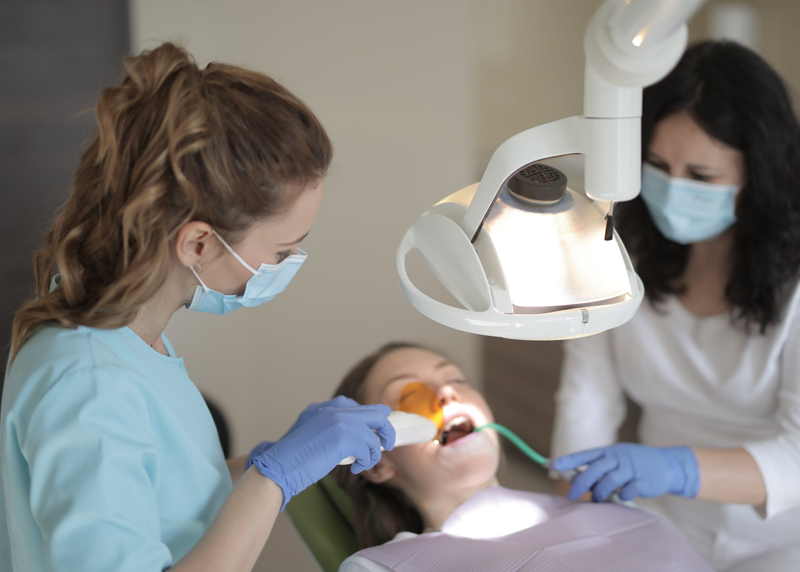Enhancing Your Child’s Comfort During Their Treatment
If your child is in need of extractions, cavities filled, crowns, and/or space maintainers, we can make the visit more comfortable by offering some of the below services:

Nitrous Oxide:
Some children are given nitrous oxide/oxygen analgesia — otherwise known as “laughing gas” — to relax them for their dental treatment.
Nitrous oxide/oxygen is a blend of two gasses” oxygen and nitrous oxide (N2O). N2O is given through a small breathing mask, which is placed over the child’s nose, allowing them to relax without putting them to sleep.
The American Academy of Pediatric Dentistry recognizes this technique as a very safe and effective technique to use for treating children’s dental needs. The gas is mild, easily taken, and — with normal breathing — quickly eliminated from the body.
While inhaling N2O, your child remains fully conscious and keeps all natural reflexes. This service is also non-addictive.
Prior to your appointment:
Please inform us of any change to your child’s health and/or medical condition.
Tell us about any respiratory condition that makes breathing through the nose difficult for your child. It may limit the effectiveness of nitrous oxide/oxygen.
Let us know if your child is taking any medication on the day of the appointment.
Conscious Sedation (Versed or Valium):
Conscious sedation is recommended for apprehensive children, very young children, and children with special needs. It is used to calm your child and to reduce the anxiety or discomfort associated with dental treatments. Your child may be quite drowsy, and may even fall asleep, but they will not become unconscious.
There are a variety of different medications used for conscious sedation. The doctor will prescribe the medication best suited for your child’s overall health and dental treatment recommendations.
We will be happy to answer any questions you might have concerning the specific drugs we plan to give to your child.
Prior to the appointment:
Please notify us of any change in your child’s health and/or medical conditions. Do not bring your child for treatment with a fever, ear infection, or cold. Should your child become ill, contact us to see if it is necessary to postpone the appointment.
You must tell the doctor of any drugs (herbal or over the counter) that your child is currently taking and any drug reactions and/or change in medical history.
Please dress your child in loose fitting, comfortable clothing.
Please make sure that your child goes to the bathroom immediately prior to arriving at the office.
Your child should not have solid food for at least 6 hours prior to their sedation appointment and only clear liquids for up to 4 hours before the appointment.
The child’s parent or legal guardian must remain at the office during the complete procedure.
Please watch your child closely while the medication is taking effect. Hold them in your lap or keep close to you. Do not let them “run around.”
Your child will act drowsy and may become slightly excited at first.
After the sedation appointment:
Your child will be drowsy and will need to be monitored very closely. Keep your child away from areas of potential harm.
If your child wants to sleep, place them on their side with their chin up. Wake your child every hour and encourage them to have something to drink in order to prevent dehydration. At first, it is best to give your child sips of clear liquids to prevent nausea. Their first meal following treatment should be light and easily digestible.
If your child vomits, help them bend over and turn their head to the side to ensure that they do not inhale the vomit.
Local Anesthetic/Numbing:
Your child will receive a local anesthetic for MOST dental procedures and will remain numb for several hours after treatment.
Please do not offer any foods that require chewing until the numbness has passed, but note that liquids are okay. Local anesthetics numb the lips and cheeks of the area involved and, sometimes, the tongue. Children usually do not understand and have the tendency to chew or suck the numb area. If they do this, the area will become raw with swelling and yellow sores/scabs, which can be very uncomfortable.
PLEASE watch your child very closely until the numbness disappears. Lip or cheek bite injuries usually occur shortly after leaving the office.
